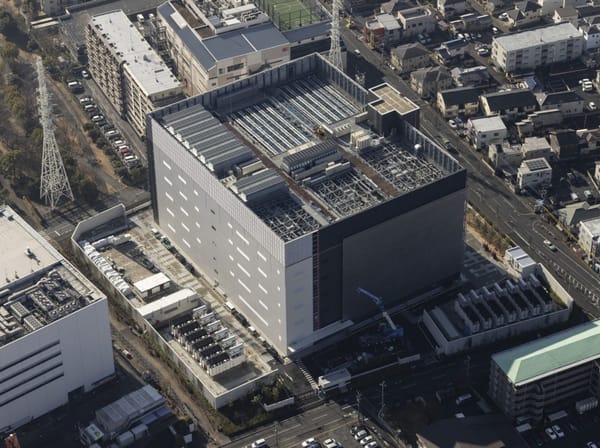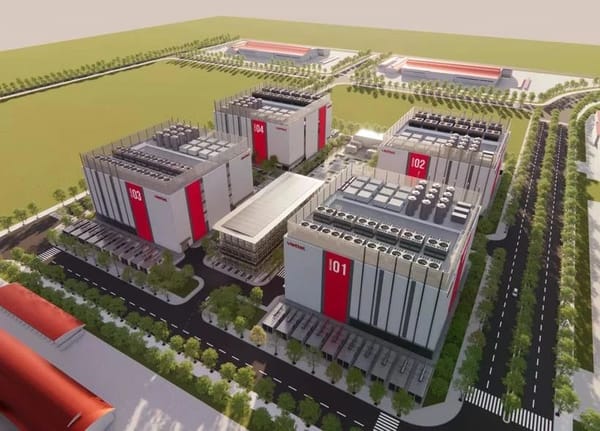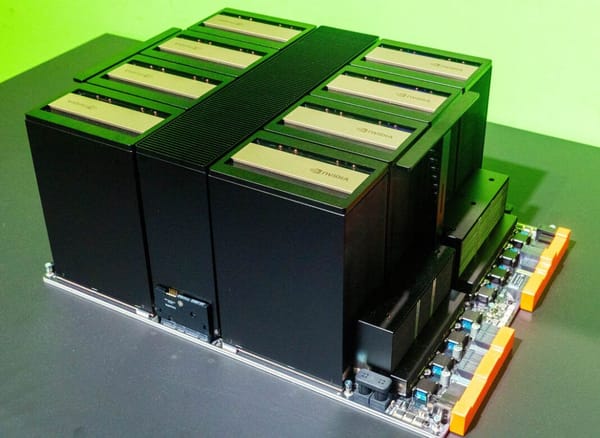Supercomputers are getting much faster than before
Fastest 5 supercomputers account for 43% of the total computational performance of top 500 supercomputers.
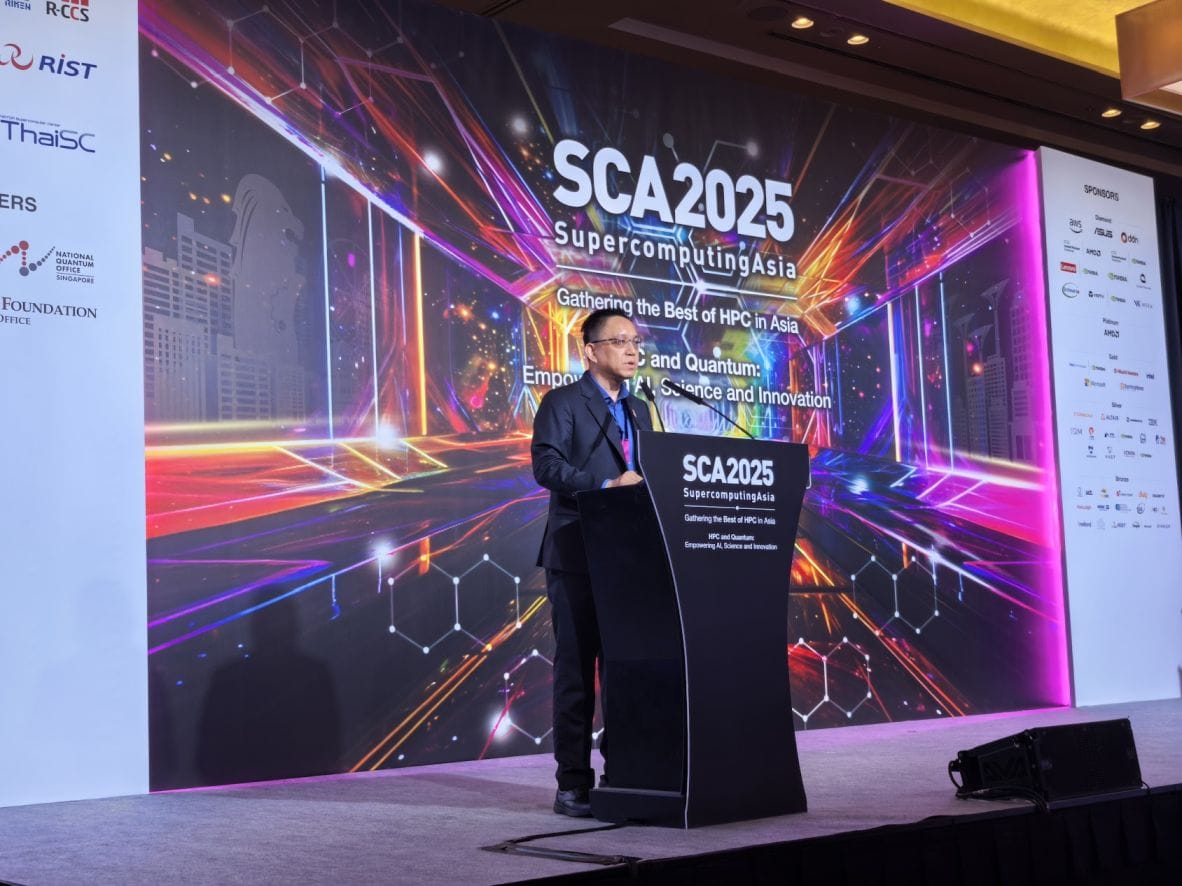
Did you know? The fastest 5 supercomputers account for 43% of the total computational performance of the top 500 supercomputers.
That's how much more powerful supercomputers have become in recent years.
I was at Day 1 of SuperComputing Asia 2025 today and came away with copious notes about high-performance computing (HPC), liquid cooling and AI.
Liquid cooling ahead
Unsurprisingly, there was no shortage of liquid-cooled servers in the exhibition hall. As I wrote recently, liquid cooling is now a must for AI data centres.
On this front, I saw servers from Asus built for direct-to-chip (DTC) cooling, as well as their Nvidia and AMD GPU servers. Check out the photo of a (liquid cooling) quick disconnect plug I snapped.
𝗽𝘀: To be clear, air-cooling will work just fine if you are not planning to roll out hundreds of GPU servers in a high-density deployment.
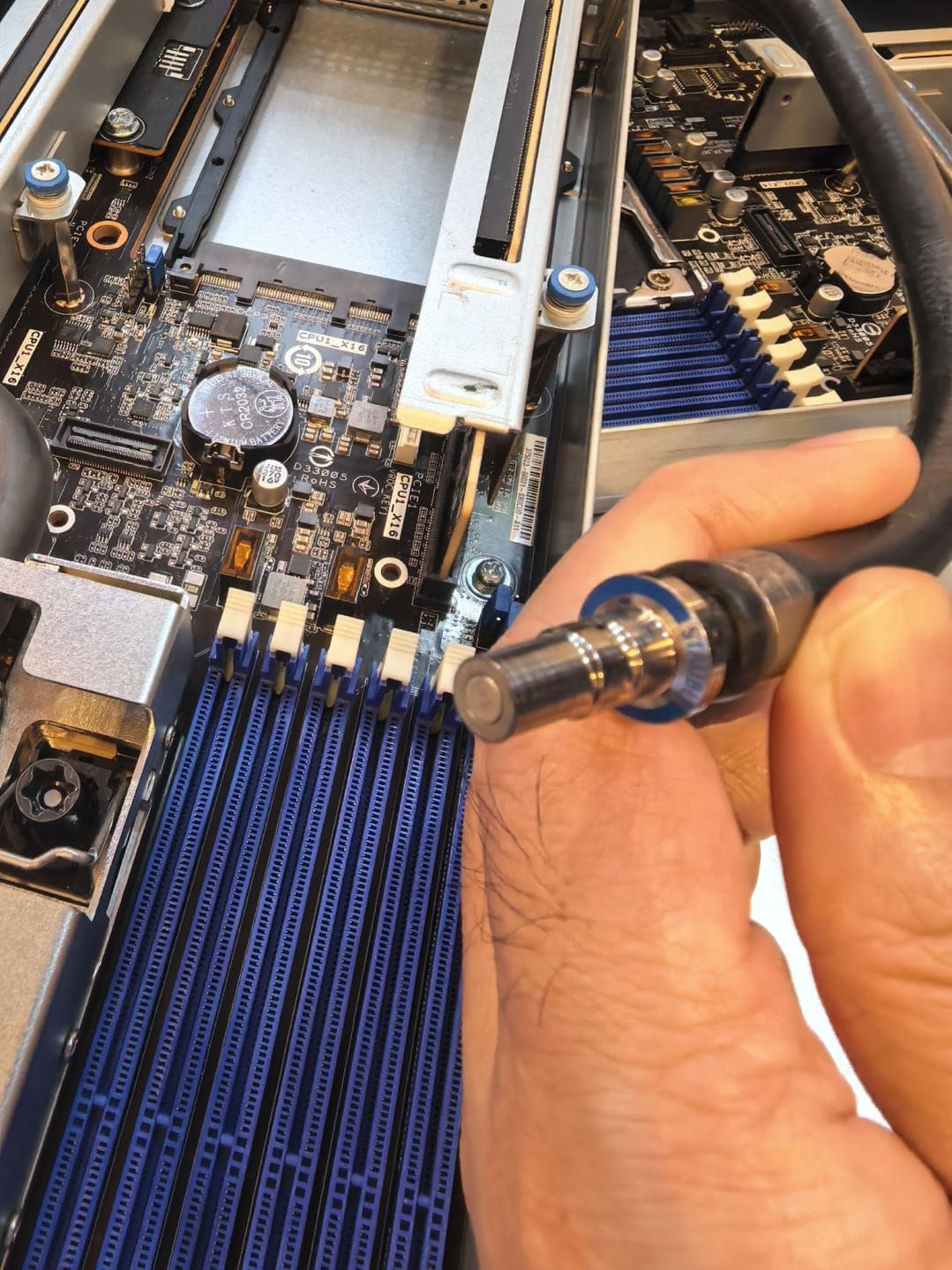
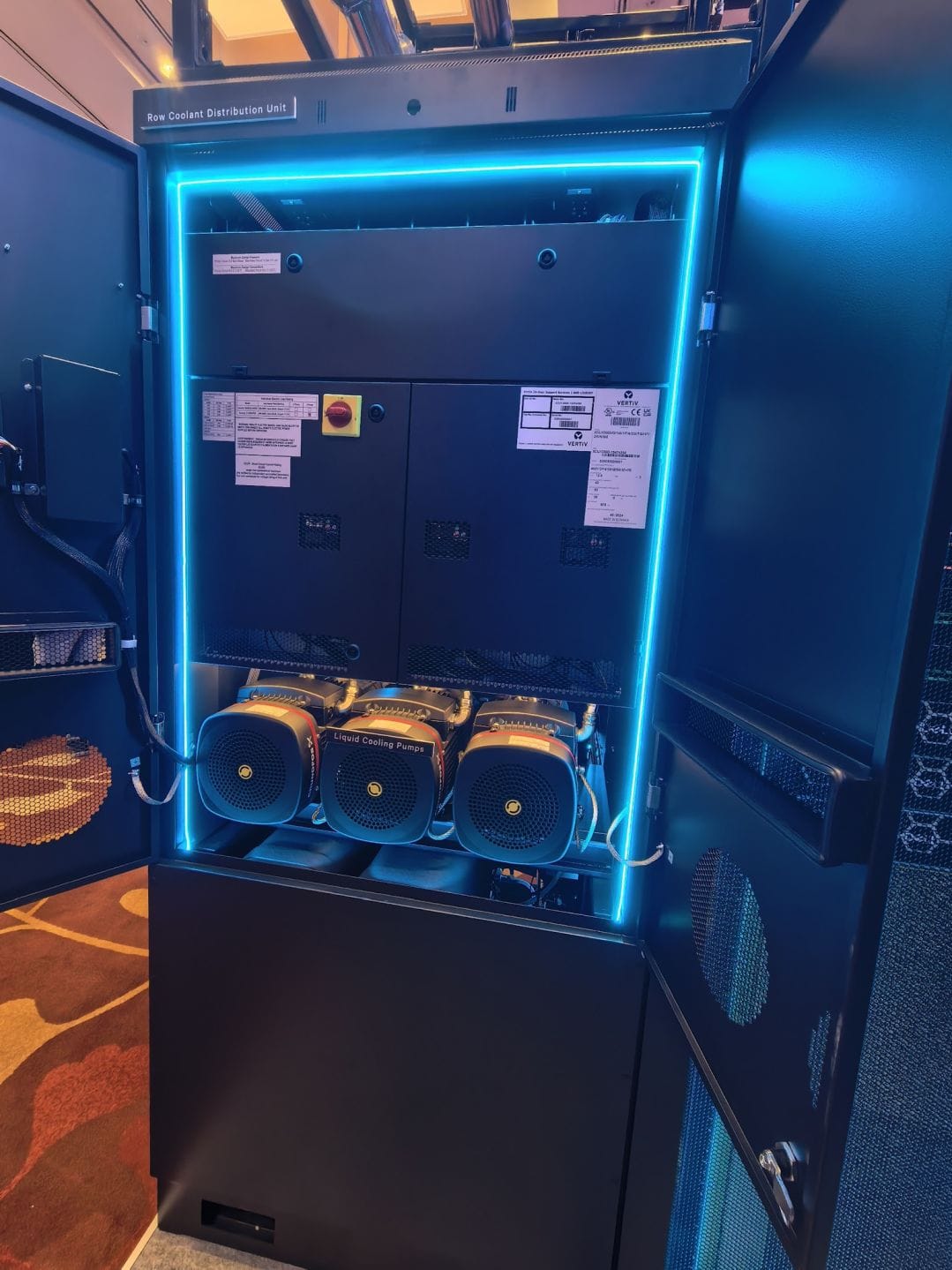
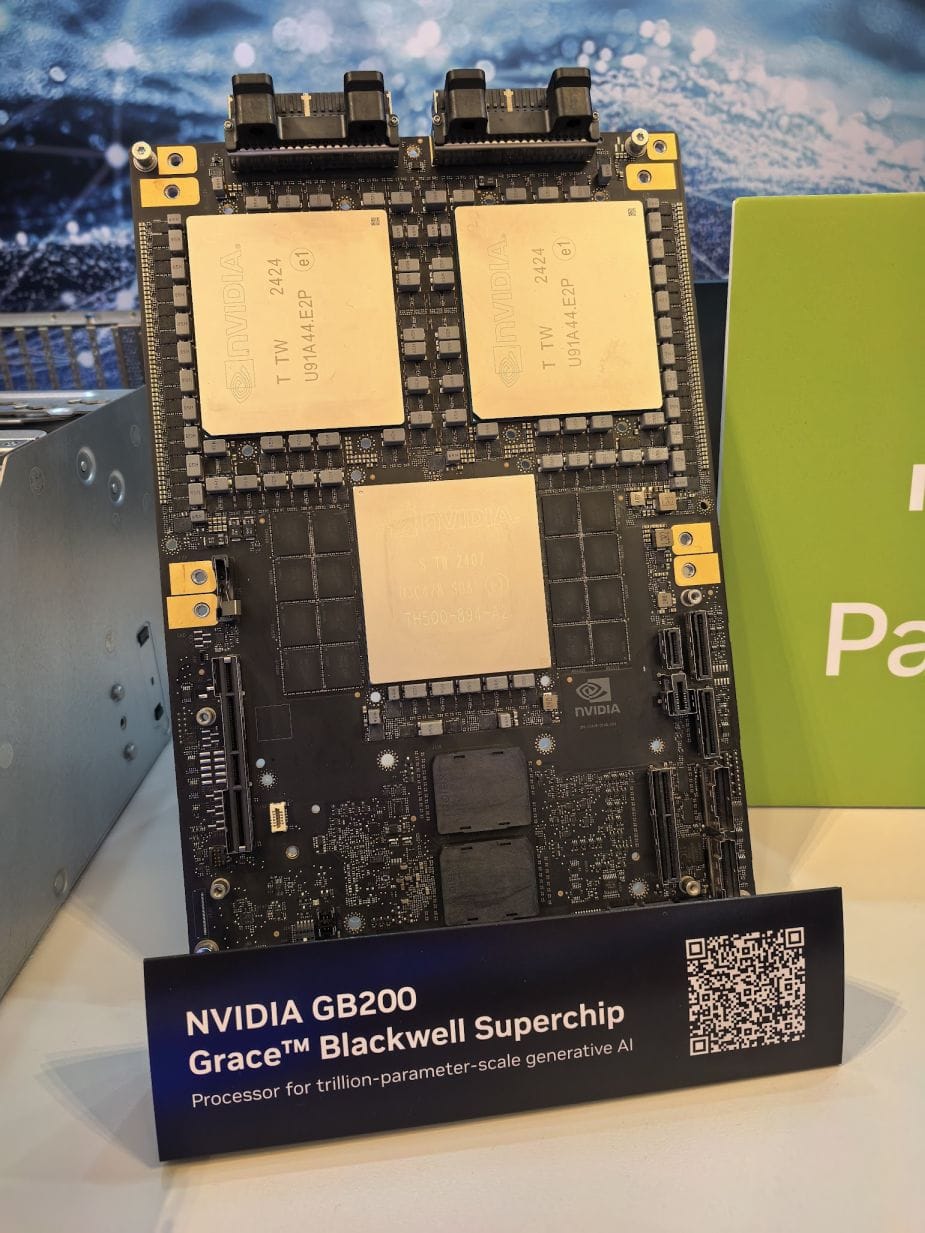
Photo Captions: Quick disconnect plug of an Asus server (Left). Vertiv 1.3MW Coolant Distribution Unit (Centre). Nvidia GB200 'superchip' with ARM CPU (Right).
Flow control
But what if you must do liquid cooling? I chatted with Danny Wong of Vertiv, who helpfully walked me through what a liquid cooling deployment looks like.
Spoiler: It's way trickier than you think.
Some challenges to consider:
- Limited reaction time if problems develop.
- Fouling of microchannels, pipes.
- Maintenance can be tricky.
I'll go into the details in another post.
I took a photo of the Vertiv 1.3MW in-row CDU, or Coolant Distribution Unit. I was told two are recommended for 10-13 racks of the latest B200 GPU servers.
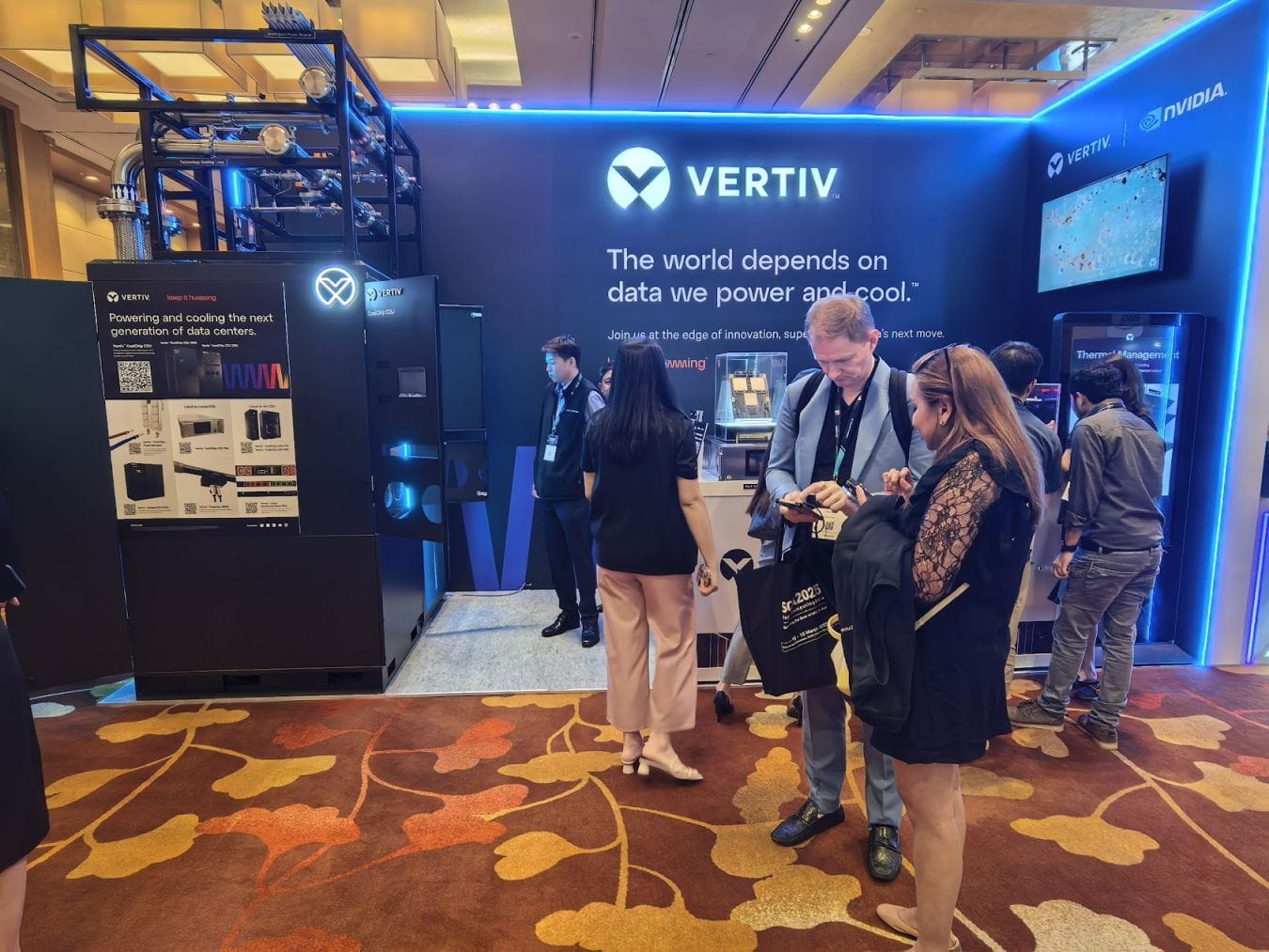
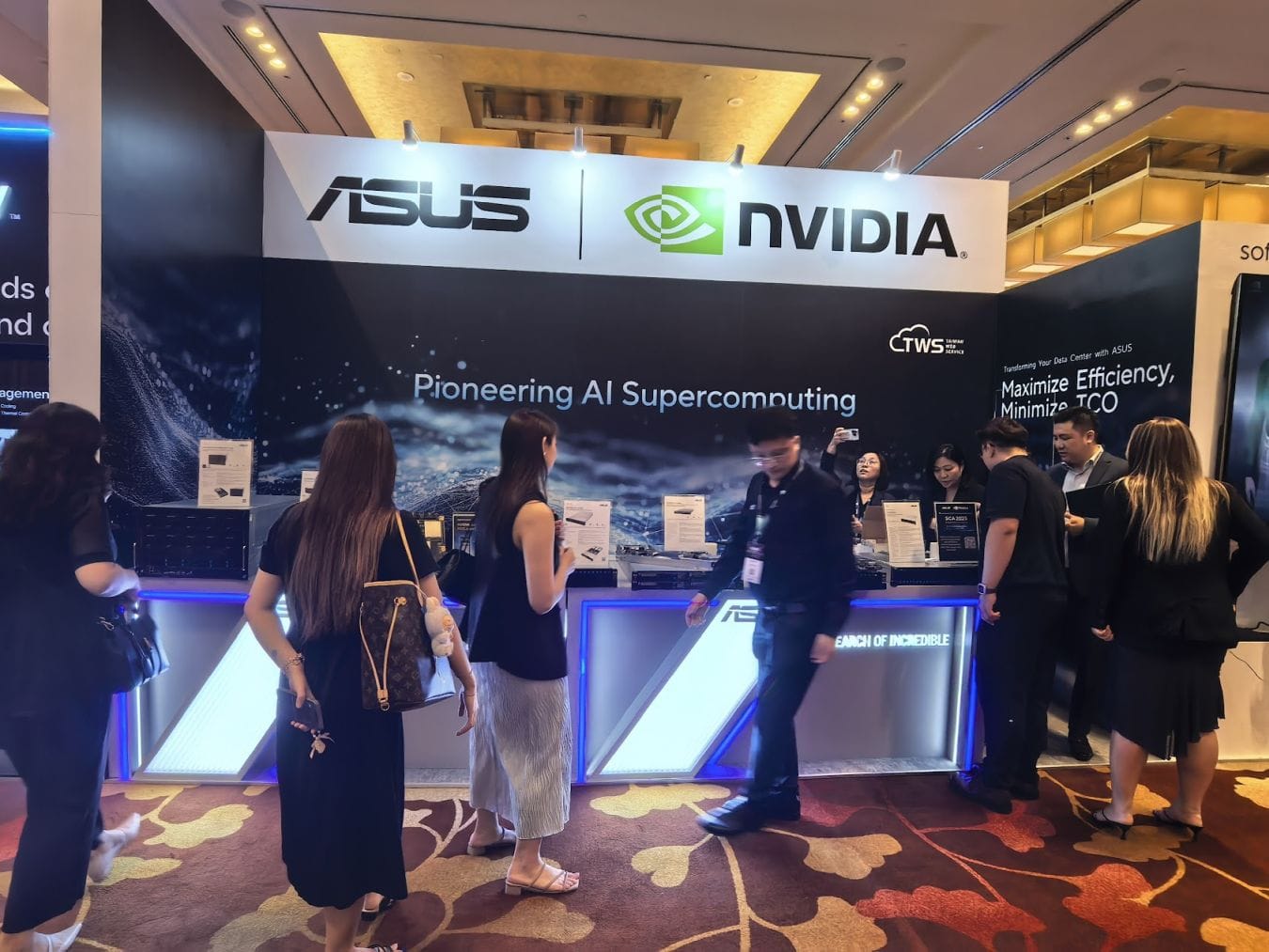
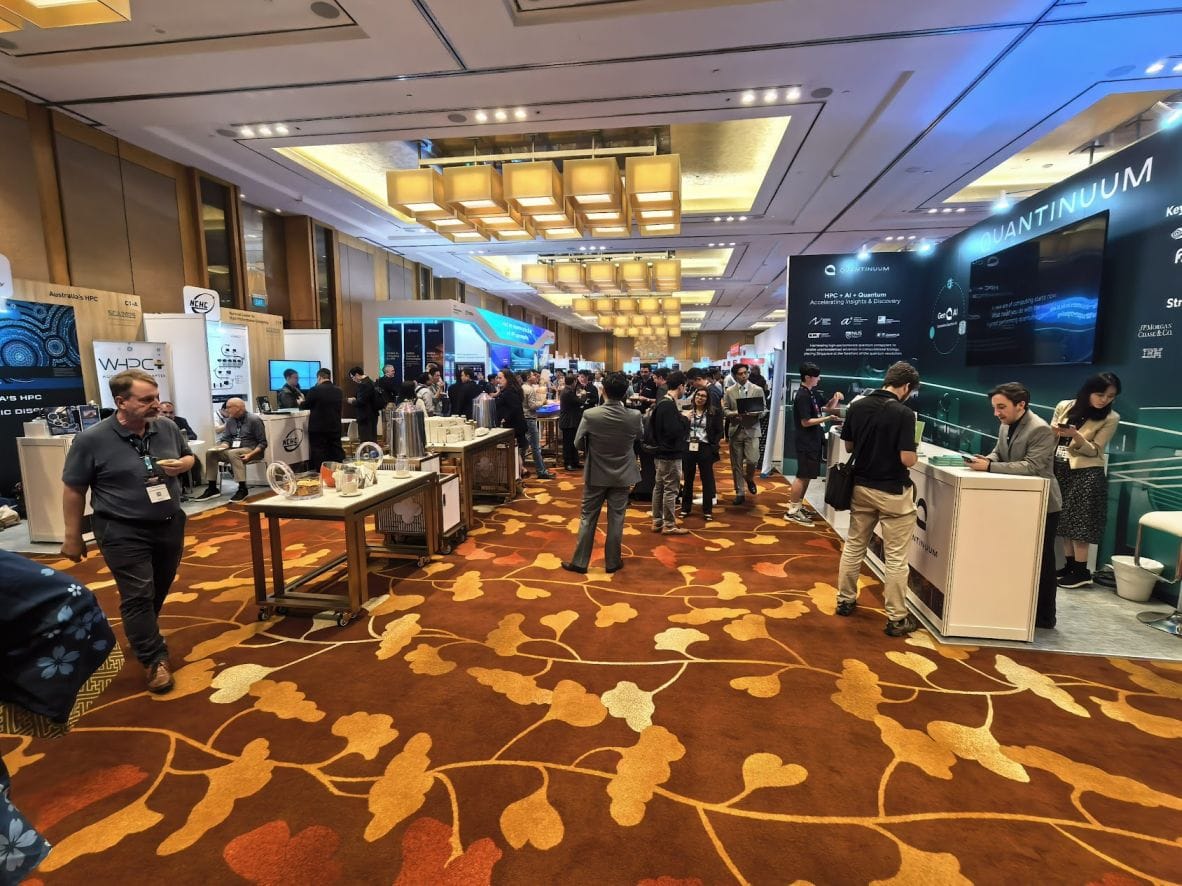
Lower precision for AI
Remember when I explained some of the innovations made by the DeepSeek team that stunned AI experts? One was the (mixed) use of 8-bit numbers with 32-bit numbers.
What I didn't realise was how the latest GPUs now favour lower precision performance due to AI. Indeed, Nvidia's newest B200 GPU has less 64-bit capability (40Tflop/s) than the older H100 GPU (67Tflop/s).
In his keynote, Prof Jack Dongara went into detail about how to use mixed precision computation for GPU-powered supercomputers.
I don't have space to go into details, but here's what the future bodes, according to him:
- Expect mixed precision use to increase.
- HPC hardware is constantly changing.
- Expect algorithm and software advances.
SuperComputing Asia 2025 is held at MBS from 10 March (Mon) until 13 March (Thur) this week.


